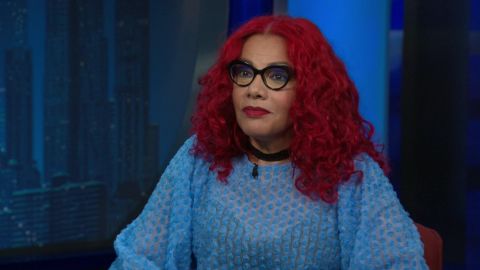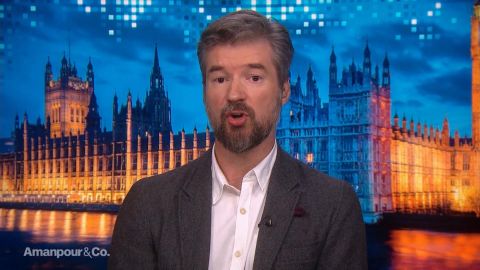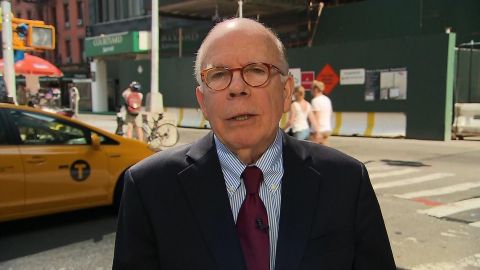Read Transcript EXPAND
CHRISTIANE AMANPOUR: Do you believe, does “The New York Times” believe that this Trump administration which every day shows its disdain for the right and safety of the free press, do you think they’re actually actively telling their people not to look out for people like you?
DECLAN WALSH, NEW YORK TIMES CAIRO BUREAU CHIEF: I think there are a couple of levels to it. I think one is what’s said in public and the effect that that has. I think that the rhetoric that we’ve been talking about, particularly the use of the term “fake news” sends entirely the wrong signal to authoritarian leaders in countries like Egypt and Turkey where those leaders see the press as an irritant to be squashed. And they feel — and when they hear a country like the U.S., which traditionally has stood staunchly for press freedom, they see that as a sign that those principles are wavering in the U.S. and that they will not face the same kind of pushback or reprisals that they might once have faced if they crack down on journalists, either international ones or local ones. And I think the second aspect to it is what’s going on in private. We don’t know exactly what the policy of the Trump administration is on press freedom in relation to cases like mine or in relation to local journalists in these countries. But what we do know is what this official told our editors which is that he felt in this case at least that the administration, even though it was aware of this threat, was not ready or was not prepared to act. And I think that was a worrisome sign. And I think that’s why the publisher of “The Times”, A.G. Sulzberger, chose earlier this week to make this case public as an example of what he sees and has seen more broadly as a worrying phenomenon, that the U.S. that was once, if you like, the guarantor of press freedom for its own journalists and for other journalists in other countries now seems to be stepping back from that role.
AMANPOUR: And A.G. Sulzberger did go to the White House again in February and talked face to face with the president about this issue which has been published before. But this sound of their conversation, let’s just play it.
(BEGIN VIDEO CLIP)
A.G. SULZBERGER, PUBLISHER, THE NEW YORK TIMES: As I’ve talked to my colleagues around the globe, working in different countries, particularly working in countries where a free press is already a tenuous thing, they say that they are increasingly of the belief that your rhetoric is creating a climate in which dictators and tyrants are able to employ your words in suppressing a free press. I’d urge you to reconsider these attacks.
DONALD TRUMP, PRESIDENT OF THE UNITED STATES: I understand that.
SULZBERGER: But if — you choose not to, I just, I want you to be aware of some of the consequences that I’m starting to see out there.
TRUMP: Would you say more so now than over the last five years?
SULZBERGER: Yes.
About This Episode EXPAND
Antony Blinken joins Christiane Amanpour to analyze the whistle-blower complaint at the center of the Trump impeachment investigation. Then, former CIA Deputy Director John McLaughlin gives his perspective on the case and New York Times reporter Declan Walsh discusses threats to journalism. Mona Eltahawy sits down with Michel Martin to explain her book “The Seven Necessary Sins for Women.”
LEARN MORE



